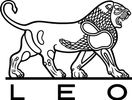LEO Pharma Initiates Phase 2a DELTA NEXT Trial of Delgocitinib Cream in Adults with Mild to Severe Palmoplantar Pustulosis (PPP)
3.6.2025 09:00:00 CEST | LEO Pharma | Pressemeddelelse
- The phase 2a proof-of-concept trial will recruit up to 135 adult patients with mild to severe PPP to investigate the efficacy and safety of delgocitinib cream compared to cream vehicle.
- Delgocitinib cream has been shown to inhibit the activity of all four JAKs,(1,2) making it a potential therapeutic candidate for treating PPP.

BALLERUP, Denmark, June 3, 2025 --- LEO Pharma A/S, a global leader in medical dermatology, today announced the initiation of the phase 2a proof-of-concept DELTA NEXT trial. The trial aims to evaluate the efficacy and safety of delgocitinib cream compared to cream vehicle in the treatment of adults with mild to severe Palmoplantar Pustulosis (PPP).
PPP is the first disease for which LEO Pharma will investigate delgocitinib cream since completion of the Phase 3 DELTA trials in Chronic Hand Eczema (CHE).
“The DELTA NEXT trial in PPP represents an exciting new chapter in the clinical development journey of delgocitinib cream,” said Christophe Bourdon, Chief Executive Officer, LEO Pharma. “PPP is a disease with few treatment options that can severely affect quality of life. We are hopeful that this therapy could potentially provide much-needed help for patients suffering from this devastating condition.”
PPP is an uncommon, chronic, inflammatory, relapsing skin disease characterized by repeated episodes of sterile pustules alongside erythema, blistering and scaly skin on the palms and/or soles of the feet.3,4 PPP is associated with a high patient burden, resulting in significant impairment of quality of life. Patients often experience pain, fatigue, and the condition can be triggered by factors such as smoking, infections, and stress. PPP is associated with comorbidities such as thyroid dysfunction and metabolic syndrome.4
There are currently no approved advanced systemic treatments for PPP in the U.S. or Europe.5 PPP is associated with complex T-cell activation patterns, which may be why many biologics that target individual T helper cell populations have shown limited efficacy in clinical trials.6
Delgocitinib cream is a topical pan-Janus kinase (JAK) inhibitor shown to inhibit the activity of all four JAKs, which are involved in inflammatory signaling.1,2 Using delgocitinib cream’s mechanism of action, the trial will investigate the potential benefit of inhibiting multiple JAKs to treat PPP.
“I’ve seen firsthand how PPP can severely disrupt patients’ lives, making it painful to walk, perform activities of daily living and impacting their ability to work,” said Dr. Robert Bissonnette, international coordinating investigator (ICI) on the DELTA NEXT trial and Chairman at Innovaderm Montreal, Canada. “Despite the significant burden it places on patients, treatment options remain limited. There is a real and urgent need for effective therapies."
The DELTA NEXT trial plans to recruit up to 135 patients with active, chronic, mild to severe PPP for whom topical corticosteroids are inadequate or inadvisable. Participants will be recruited across 40-45 sites in the United States, Canada, the United Kingdom, Germany, and Poland.
Currently, delgocitinib cream is approved for adults in the European Union, United Kingdom, Switzerland, and the United Arab Emirates for the treatment of moderate to severe CHE for whom topical corticosteroids are inadequate or inappropriate, and is under review in other markets, including the United States.
For more information on the DELTA NEXT trial, go to clinicaltrials.gov.
*ENDS*
Notes to editors
About Delgocitinib Cream
Delgocitinib cream is a topical pan-Janus kinase (JAK) inhibitor. It prevents the activation of the JAK-STAT pathway by blocking the signaling of several inflammatory cytokines, thereby suppressing the inflammatory cascade and preventing the downregulation of important barrier genes.7
Delgocitinib cream is currently approved in the European Union, the United Kingdom, Switzerland and the United Arab Emirates for the treatment of moderate to severe Chronic Hand Eczema (CHE) in adults for whom topical corticosteroids are inadequate or inappropriate. It is under review in other markets, including the United States.
In 2014, LEO Pharma A/S and Japan Tobacco Inc. (JT) entered into a license agreement in which LEO Pharma gained exclusive rights to develop and commercialize delgocitinib cream for topical use in dermatological indications worldwide, excluding Japan, where JT retains rights.
About the DELTA NEXT Trial
DELTA NEXT is a phase 2a, randomized, double-blind, two-arm, vehicle control, adaptive design proof-of-concept trial to assess the efficacy and safety of twice-daily delgocitinib cream compared with cream vehicle in adult subjects with mild to severe PPP.
The DELTA NEXT trial plans to recruit up to 135 patients with active, chronic, mild to severe PPP for whom topical corticosteroids are inadequate or inadvisable. Participants will be randomized into a 2:1 ratio to receive either delgocitinib cream or cream vehicle. Participants will be recruited across 40-45 sites in the United States, Canada, the United Kingdom, Germany, and Poland.
About Palmoplantar Pustulosis (PPP)
Palmoplantar Pustulosis (PPP) is an uncommon chronic, inflammatory, relapsing skin disease characterized by repeated episodes of sterile pustules alongside erythema, blistering and scaly skin on the palms and/or soles of the feet.3,4 The disease is more common in females, with the estimated prevalence ranging from 0.01% to 0.05%.3,4 The mean age of patients ranges from 40 to 58 years and is often associated with smoking, thyroid-gland abnormalities, and nickel sensitivity.4,8
PPP is associated with a significant clinical burden. Patients often experience pain, fatigue, and the condition can be associated with hyperlipidemia and high blood pressure.8 The condition has been shown to have a greater impairment on work and daily life than plaque psoriasis.8
References
- Tanimoto A, Ogawa Y, Oki C, et al. Pharmacological properties of JTE-052: a novel potent JAK inhibitor that suppresses various inflammatory responses in vitro and in vivo. Inflamm Res. 2015;64(1):41-51.
- Tanimoto A, Shinozaki Y, Yamamoto Y, et al. A novel JAK inhibitor JTE-052 reduces skin inflammation and ameliorates chronic dermatitis in rodent models: Comparison with conventional therapeutic agents. Exp Dermatol. 2018;27(1):22-29.
- Kharawala S, Golembesky AK, Bohn RL, Esser D. The clinical, humanistic, and economic burden of generalized pustular psoriasis: a structured review. Expert Rev Clin Immunol. 2020;16(3):239-252.
- Misiak-Galazka M, Zozula J, Rudnicka L. Palmoplantar Pustulosis: Recent Advances in Etiopathogenesis and Emerging Treatments. Am J Clin Dermatol. 2020;21(3):355-370.
- Xu JM, Wang HM, Jin HZ. An update on therapeutic options for palmoplantar pustulosis: a narrative review and expert recommendations. Expert Rev Clin Immunol. 2023;19(5):499-516.
- McCluskey D, Benzian-Olsson N, Mahil SK, et al. Single-cell analysis implicates TH17-to-TH2 cell plasticity in the pathogenesis of palmoplantar pustulosis. J Allergy Clin Immunol. 2022;150(4):882-893.
- Dubin C, Del Duca E, Guttman-Yassky E. Drugs for the Treatment of Chronic Hand Eczema: Successes and Key Challenges [published correction appears in Ther Clin Risk Manag. 2021 Mar 18;17:233.]. Ther Clin Risk Manag. 2020;16:1319-1332.
- Lebwohl MG, Medeiros RA, Strober B, et al. Palmoplantar Pustulosis has a Greater Disease Burden than Plaque Psoriasis: Real-World Evidence From the CorEvitas Psoriasis Registry. J Psoriasis Psoriatic Arthritis. 2023;8:56–65.
MAT-82985 June 2025
Kontakter
Jeppe IlkjærGlobal Communications
Tlf:+45 3050 2014JEILK@leo-pharma.comJes Broe FrederiksenCommercial Communications
Tlf:+45 5360 5948jebfe@leo-pharma.comAbout LEO Pharma
LEO Pharma is a global leader in medical dermatology. We deliver innovative solutions for skin health, building on a century of experience with breakthrough medicines in healthcare. We are committed to making a fundamental difference in people’s lives, and our broad portfolio of treatments serves close to 100 million patients in over 70 countries annually. Headquartered in Denmark, LEO Pharma has a team of 4,000 people worldwide. LEO Pharma is co-owned by majority shareholder the LEO Foundation and, since 2021, Nordic Capital. For more information, visit www.leo-pharma.com.
Følg pressemeddelelser fra LEO Pharma
Skriv dig op her, og modtag pressemeddelelser på e-mail. Indtast din e-mail, klik på abonner, og følg instruktionerne i den udsendte e-mail.
Flere pressemeddelelser fra LEO Pharma
LEO Pharma advances Anzupgo® (delgocitinib) cream to phase 3 trial in lichen sclerosus (LS)21.1.2026 09:00:00 CET | Pressemeddelelse
The phase 3 trial DELTA CARE 1 will recruit up to 652 adult patients with lichen sclerosus (LS) to investigate the efficacy and safety of delgocitinib cream compared to cream vehicle.1 The study initiation in LS is part of LEO Pharma's ambition to explore Anzupgo (delgocitinib) creme in additional indications beyond Chronic Hand Eczema (CHE), investigating the potential of delgocitinib as treatment option in skin diseases with high unmet medical need. There are currently no approved treatments specifically indicated for LS in the U.S. or in Europe. Delgocitinib cream has been shown to inhibit the activity of all four JAKs,2,3 making it a potential treatment option for people living with LS disease.
LEO Pharma to present at the 44th annual J.P. Morgan Healthcare Conference7.1.2026 13:00:00 CET | Pressemeddelelse
Ballerup, Denmark, January 7, 2026 – LEO Pharma, a global leader in medical dermatology, announced today that CEO Christophe Bourdon will deliver a company update at the 44th Annual J.P. Morgan Healthcare Conference in San Francisco on Tuesday, January 13, 2026, at 9:00 AM PST. With over 60 years of specialist expertise in medical dermatology and more than 90 million patients served in 70+ markets, LEO Pharma is uniquely positioned in one of healthcare’s most attractive and underserved sectors. Backed by an unmatched portfolio combining category‑leading brands with first‑in‑class innovations, the company is redefining standards of care for patients with high unmet needs. Entering 2026, LEO Pharma builds on the strong momentum of recent years, marked by robust top-line growth, significant margin expansion, and a promising pipeline. Leveraging its unique global platform, the LEO Pharma is advancing innovation as the preferred partner in medical dermatology. The J.P. Morgan Healthcare Con
LEO Pharma appoints Marika Murto to lead Global Product Strategy16.12.2025 09:00:00 CET | Pressemeddelelse
Marika Murto brings over 20 years of pharmaceutical expertise in product strategy, innovation, and business transformation Her appointment as SVP of Global Product Strategy will help unlock LEO Pharma’s portfolio potential, driving patient impact and supporting sustainable growth
LEO Pharma submits adolescent label expansion application for Anzupgo® to EMA15.12.2025 09:00:00 CET | Pressemeddelelse
LEO Pharma has submitted a label expansion application to EMA to expand Anzupgo® (delgocitinib) cream to adolescent patients (12–17 years) with moderate to severe chronic hand eczema (CHE) for whom topical corticosteroids are inadequate or inappropriate – the application has been accepted for review. The application is supported by results from DELTA TEEN, a phase 3 trial investigating efficacy and safety of Anzupgo® in adolescents with moderate to severe chronic hand eczema (CHE).1 The label expansion submission for adolescent patients demonstrates LEO Pharma's commitment to investigating use within relevant sub-populations where treatments can help make a fundamental difference for patients with skin diseases.
LEO Pharma Announces Positive Topline 32-Week Key Results in ADHAND Trial17.11.2025 09:00:00 CET | Pressemeddelelse
The ADHAND trial evaluates the efficacy and safety of tralokinumab in adult patients living with atopic dermatitis with moderate-to-severe hand involvement,1 a high burden, high unmet need population.2 At Week 16, tralokinumab showed statistically significant improvement compared to placebo in all primary and key secondary endpoints such as clear or almost clear skin, itch and pain.3 The 32-week results of the ADHAND trial builds on the positive findings observed at Week 16.
I vores nyhedsrum kan du læse alle vores pressemeddelelser, tilgå materiale i form af billeder og dokumenter samt finde vores kontaktoplysninger.
Besøg vores nyhedsrum